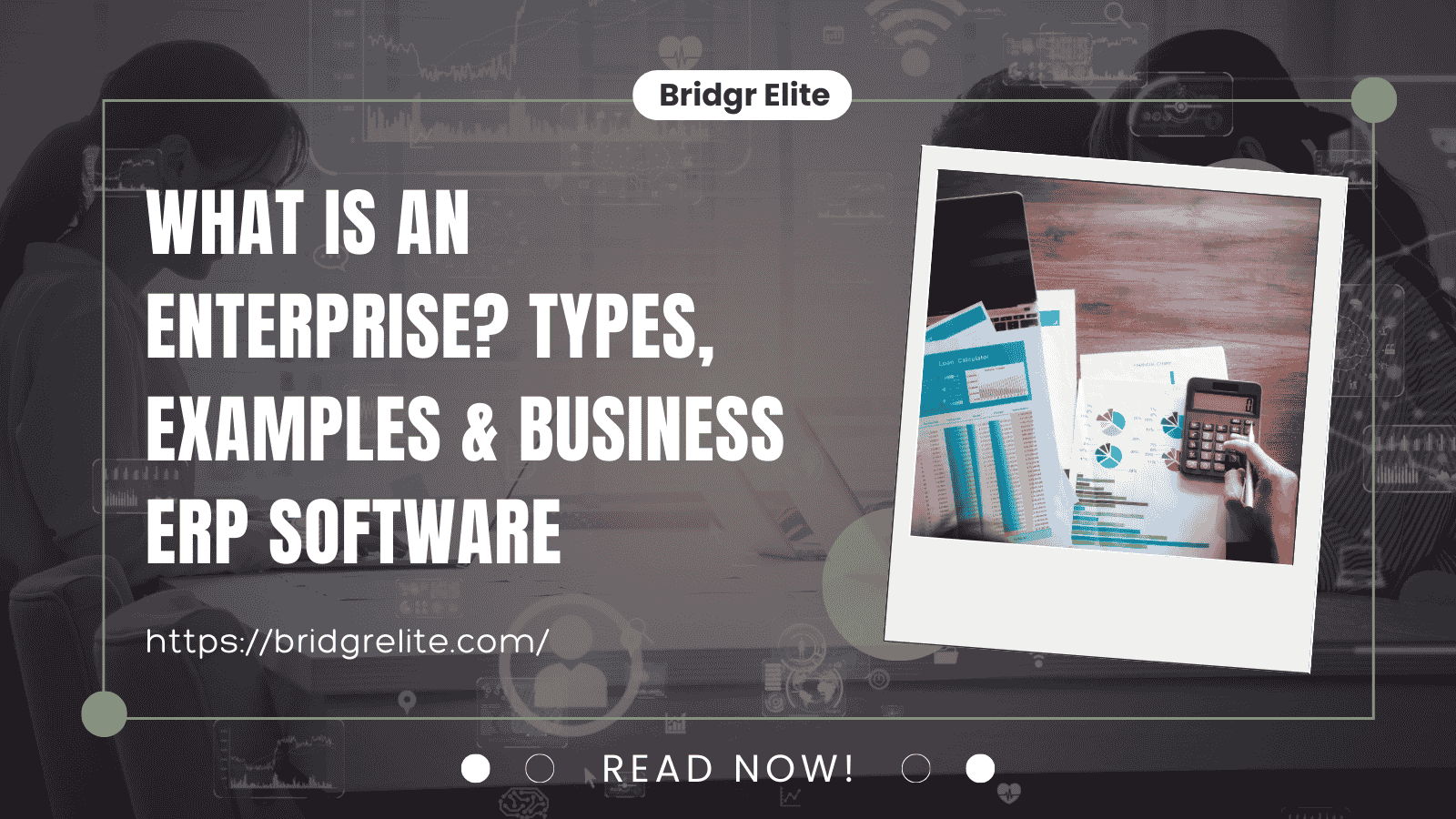
In commerce, the term venture frequently alludes to an expansive organization, regularly included in commercial, mechanical, or proficient exercises. In any case, it can allude to any trade substance, whether vast or tiny, pointed at accomplishing a specific objective, regularly including the generation or arrangement of products or administrations. Enterprise arrangements, including venture asset arranging (ERP) frameworks, have become significant for companies looking to streamline operations and make effective strides. In this article, we will investigate what characterizes an enterprise, the diverse sorts of ventures, cases of ERP software, and how to select the proper ERP framework for your business.
Enterprise ERP software alludes to applications or programs utilized by organizations to support their operations, oversee trade forms, and encourage decision-making. It incorporates devices for monetary administration, supply chain management, client relationship management (CRM), human resources (HR), and more. ERP software is one of the most conspicuous cases of an endeavor program, as it coordinates different trade capacities into one stage to advance proficiency and decision-making throughout the organization with BPO services in the UK.
An enterprise is a trade organization engaged in the creation of products or services, with a goal of making benefits and driving financial esteem. Enterprises vary broadly in terms of size, structure, and industry but share the common objective of effectively accomplishing commerce destinations. A commerce enterprise may include everything from small new businesses to gigantic worldwide organizations. The scope and scale of a venture regularly decide the complexity of its operations and the need for advanced administration services in the UK, like ERP software.
The key angles of an endeavor in commerce include:
Enterprises come in diverse shapes, basically categorized based on their estimate, reason, structure, and telemarketing services in uk. Here are the primary sorts of enterprises:
SMEs regularly have less than 500 workers and work on a smaller scale compared to expansive organizations. They may center on a nearby or territorial market, offering products or services to a particular niche.
Examples: Nearby retail stores, small-scale fabricating companies, consultancies, etc.
These are multinational enterprises with broad operations and assets. Expansive enterprises regularly have worldwide proximity, various divisions, and complex commerce processes of IT Support Service UK.
Examples: Google, Microsoft, Common Electric, etc.
Public enterprises are owned and operated by the government or state. They frequently provide essential services, such as utilities or transportation, to the public.
Examples: National Railroads, Postal Administrations, and Open Wellbeing Authorities.
These businesses are secretly claimed and can range in size from small new businesses to expansive combinations. The proprietorship is held by people, families, or groups of investors and provides a B2B Customer Service Strategy Guide.
Examples: Apple, Tesla, and Coca-Cola.
Nonprofit organizations are ventures that work to serve open or social objectives rather than to produce benefits for proprietors or shareholders. They depend on gifts and government financing to maintain their operations.
Examples: Charitable organizations, instructive teaching, and hospitals.
Also Read: What Is Cold Calling?
Also Read: Call Center Work From Home Checklist: Top Tips for Success!
Various ERP arrangements are accessible nowadays, outlined to meet the differing needs of businesses over different businesses. Here are a few of the best ERP program options:
SAP is one of the most broadly utilized ERP arrangements, offering a wide range of highlights custom-fitted to expansive and medium-sized ventures. SAP ERP provides functionalities for back, HR, supply chain administration, obtainment, and more.
Oracle ERP Cloud is a strong arrangement for monetary management, acquisition, extension management, and chance management. It’s known for its versatility and adaptability, making it reasonable for endeavors in distinctive industries.
This ERP framework combines CRM and ERP capabilities in one stage, advertising instruments for deals, promoting, client benefit, operations, and budgetary administration. It’s perfect for businesses utilizing Microsoft items and looking for consistent integration.
A cloud-based ERP, NetSuite is designed for developing enterprises and offers features for bookkeeping, stock administration, and order handling. It’s especially well-known among small —to mid-sized businesses looking for an all-in-one solution.
Odoo offers an open-source ERP arrangement with various apps and modules that can be customized based on trade needs. It’s appropriate for businesses of all sizes and offers versatility, adaptability, and cost-effectiveness.
Sage ERP is perfect for small and medium-sized enterprises. It offers modules for monetary administration, supply chain management, fabrication, and more. It’s known for its ease of use and affordability.
Some well-known cases of ERP programs include:
Ready to discover the ideal ERP software for your venture? Contact us today to schedule an interview with our specialists and optimize your trade operations for growth!










A commerce enterprise alludes to any organization engaged in commercial activities. Examples of endeavors include small and medium enterprises (SMEs), expansive enterprises, open endeavors, private enterprises, and non-profit enterprises.
An enterprise framework alludes to ERP software that underpins commerce operations, whereas ERP (Enterprise Asset Arranging) is a type of venture framework that coordinates center commerce forms like back, HR, and supply chain management.
A capitalist contributes capital in a trade to win benefits, whereas a business person begins and oversees a commerce, regularly taking dangers to improve and make unused opportunities.
A few illustrations incorporate SAP ERP, Prophet ERP Cloud, Microsoft Elements 365, NetSuite ERP, and Odoo ERP.
To select the right ERP program, evaluate your trade needs, consider versatility, assess client encounter, and guarantee integration with existing instruments while keeping budget limitations in intellect.
At Bridgr Elite, we are dedicated to elevating your business by connecting you with top-tier BPO, digital marketing, and accounting services. Our mission is to facilitate seamless integrations that not only meet but exceed your operational and marketing expectations.
info@bridgrelite.com
+44 2034758212
Bridgr Elite 4 Holly Crescent Woodford Green, Essex IG8 9PD
WhatsApp us